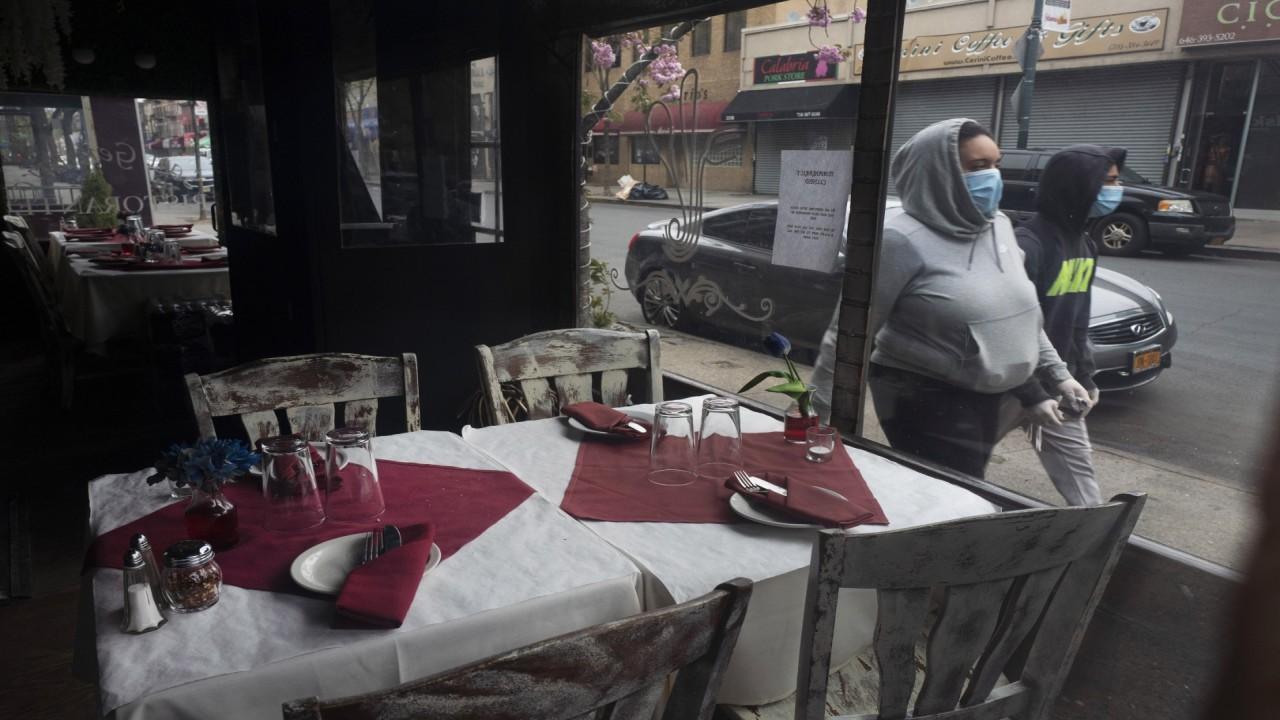PPP set to expire with $134 billion left over as Congress weighs next steps
Lawmakers now debating what to do with leftover PPP money as virus resurgence threatens nation's gradual recovery
A pivotal pandemic relief program that threw a lifeline to small businesses trying to weather the coronavirus outbreak and subsequent economic lockdown is set to expire on Tuesday with more than $130 billion in the fund leftover, leaving lawmakers scrambling to figure out what to do with the extra cash.
When the Trump administration first launched the Paycheck Protection Program at the beginning of April, the initial $349 billion allocated to the fund evaporated within 13 days. Lawmakers and small business owners anticipated a similar mad dash during the second round of funding, which resumed on April 27 after Congress injected another $310 billion in the aid program.
SMALL BUSINESS OWNERS WITH CRIMINAL PAST CAN NOW APPLY FOR PPP LOAN, SBA SAYS
But on Tuesday, the last day for small businesses to apply for a forgivable loan, there remains $134 billion in the fund. As of Friday, more than 4.7 million loans worth about $517.9 billion had been distributed through the program, according to SBA data.
Demand for the program began to cool during the second tranche, with some small businesses worried that confusion and uncertainty around the loan's rules, particularly regarding forgiveness, could potentially leave them on the hook for the money.
Congress tried to assuage those fears with the passage of the Paycheck Protection Program Flexibility Act at the beginning of June. Among other things, the legislation eased restrictions on how the money must be spent in order for the federal government to forgive it and essentially transform it into a grant. Borrowers were only required to spend 60 percent of the money on maintaining payroll, rather than the initially required 75 percent.
SMALL BUSINESSES SEEKING RELIEF HAVE UNTIL JUNE 30 TO APPLY FOR PPP LOAN
At its onset, the program was criticized heavily for granting aid to publicly traded companies that had other avenues for relief — even as small businesses languished. But the SBA and Treasury Department, which jointly administer the program, rushed to close the loopholes that allowed multimillion-dollar companies to tap the fund, including auditing any loan worth more than $2 million.
In the months since it first launched, it's been lauded as a success in helping businesses survive the worst economic catastrophe since the Great Depression. The administration has not yet released data on the program's effectiveness in buttressing the economy. At the beginning of June, Treasury Secretary Steven Mnuchin estimated it had saved some 50 million jobs.
SBA EXPECTED TO RELEASE NAMES OF PPP LOAN RECIPIENTS THIS WEEK
Some lawmakers are now debating what to do with the leftover PPP money as a resurgence in COVID-19 cases threatens to derail the nation's gradual recovery.
There's also a fear that once the PPP money fades, small businesses could see a wave of layoffs. According to a survey released by the National Federation of Independent Businesses last week, 14 percent of the companies that received PPP aid are considering laying off employees once they deplete the money. At least 70,000 of those businesses anticipate laying off at least 10 workers apiece.
AT LEAST 4 MEMBERS OF CONGRESS BENEFITED PERSONALLY FROM PPP LOANS
"There's strong bipartisan interest in protecting the funds that have been appropriated to develop a second round, but to have it targeted more to those small businesses that really need the help," Sen. Ben Cardin, the top Democrat on the Small Business and Entrepreneurship Committee, told Bloomberg News.
One proposal by Cardin and Sens. Chris Coons, D-Del., and Jeanne Shaheen, D-N.H., would allow businesses with fewer than 100 employees to tap the taxpayer-backed fund for a second time if they can prove that they lost half of their revenue as a result of the outbreak of the virus.
Eligible businesses must have exhausted their initial PPP loan, or be on pace to spend the aid in order to qualify for another loan. The bill would also extend the loan application deadline for businesses from June 30 to Dec. 30 or later. A companion bill has been introduced in the House.
CONGRESS HAS FUNNELED TRILLIONS TO CORONAVIRUS RELIEF. WHERE IS THAT MONEY GOING?
Sen. Marco Rubio, the chair of the Small Business Committee, is working on legislation that would create new programs to expand uses for the funds, including allowing chambers of commerce to apply for the aid, according to The Washington Post, which obtained a copy of the proposal.
The bill would set aside $25 billion for businesses with fewer than 10 employees and prevent hotel or restaurant chains from receiving more than $2 million.
“PPP has been widely successful. There are more companies that could benefit from it. It would be great if extending the deadline would help them. But my sense is the greater need right now is in companies that have received that assistance but now need new or different kinds of assistance,” Rubio told the Post.




















